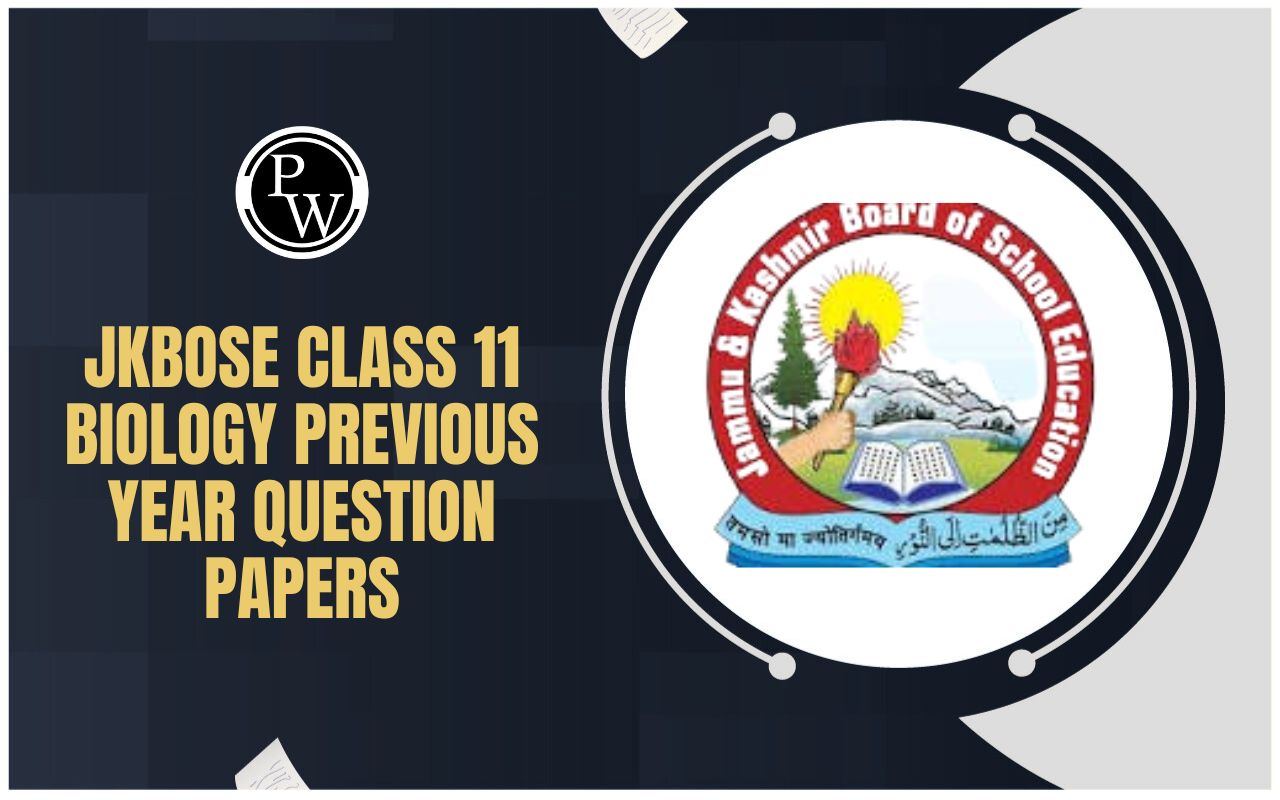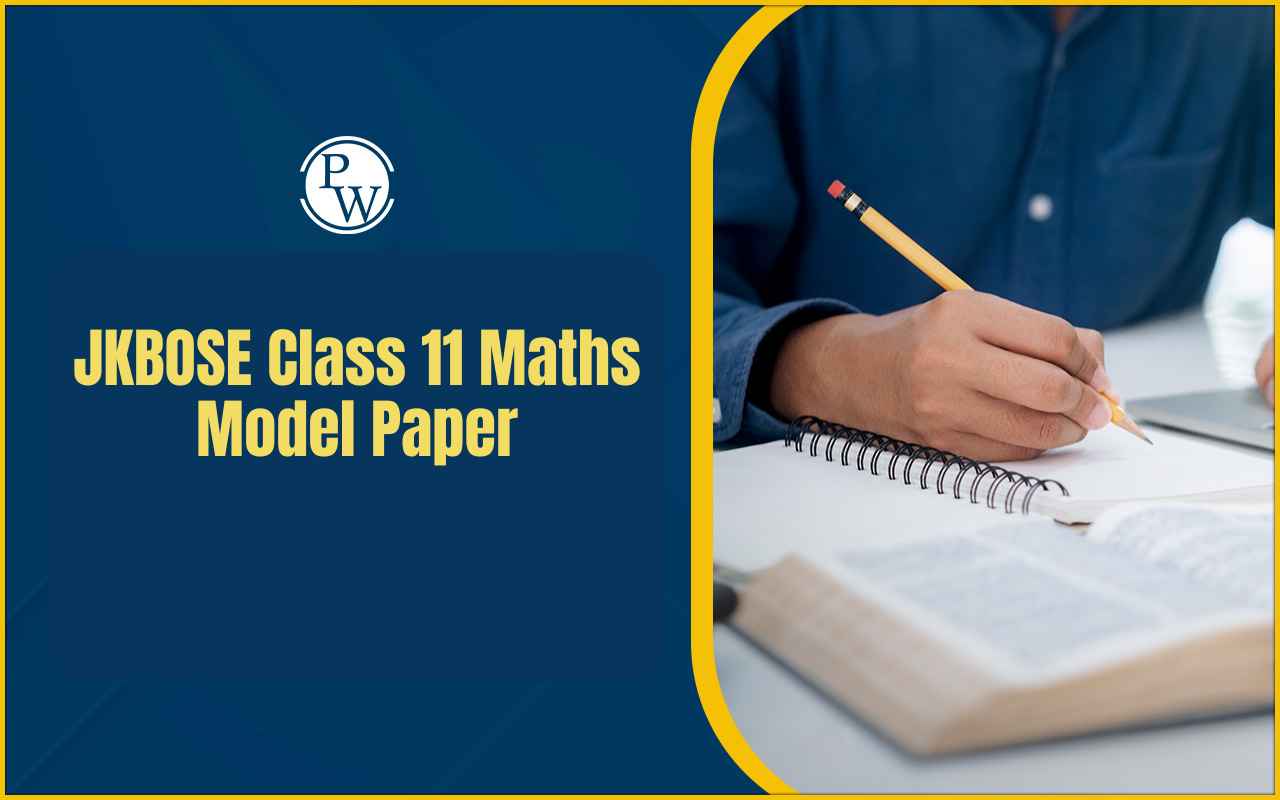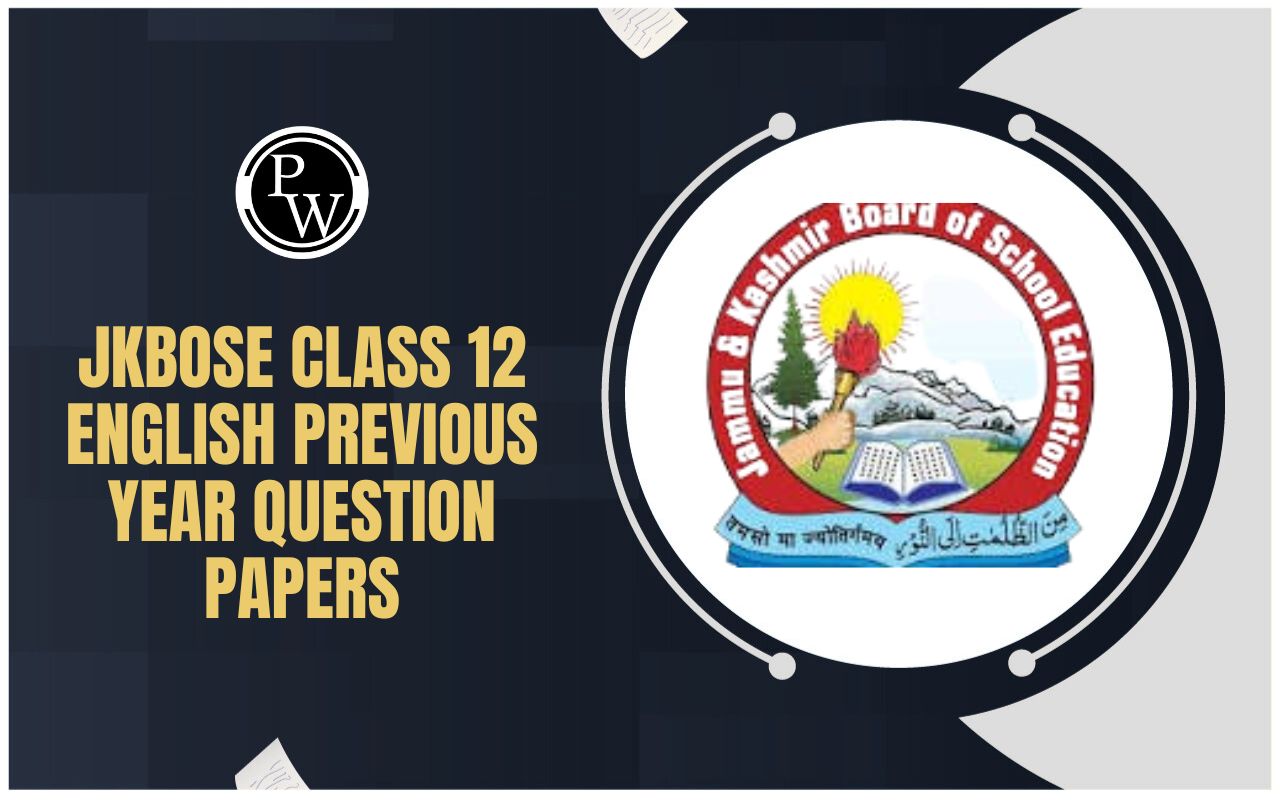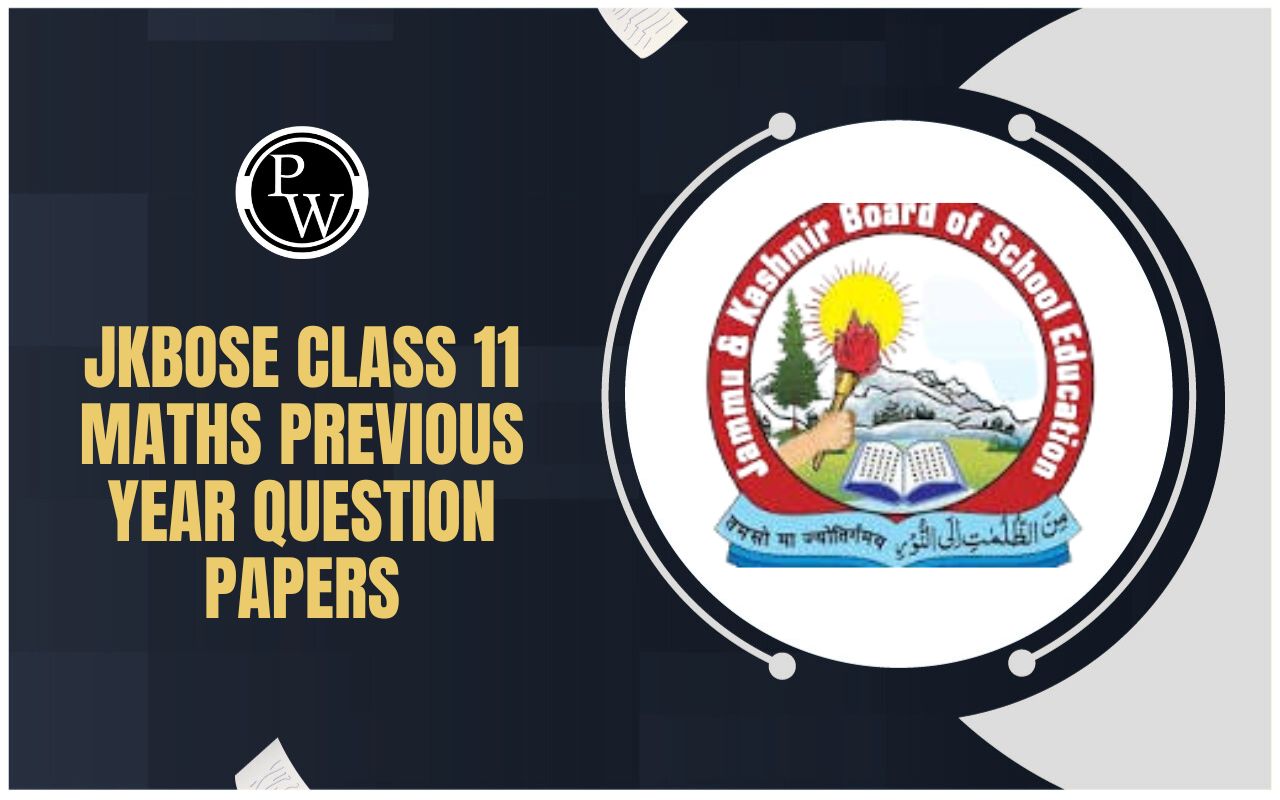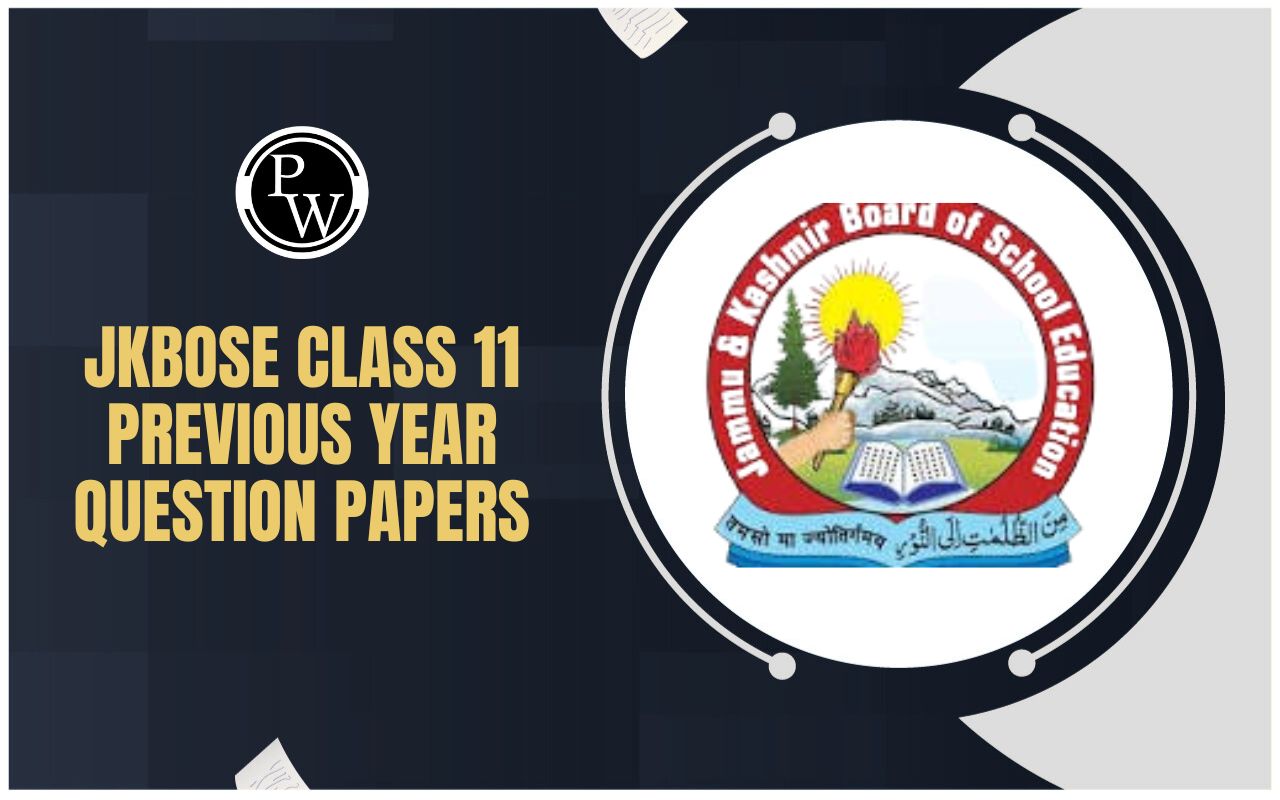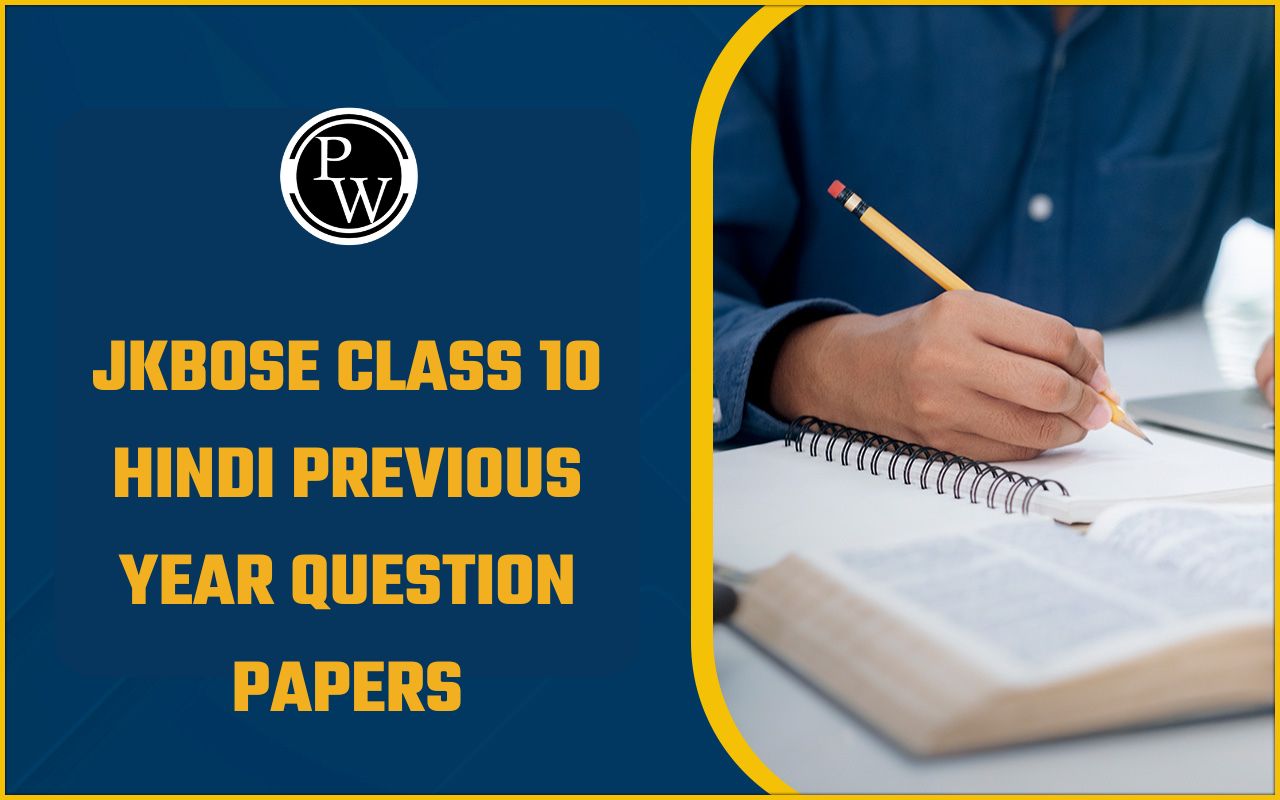
JKBOSE Class 12 Computer Syllabus 2025-26: The Jammu and Kashmir State Board of School Education (JKBOSE) releases the academic syllabus every year. The Class 12 syllabus is carefully structured to allow students to understand essential programming concepts, data handling, SQL commands, Boolean logic, and cybersecurity awareness.
The curriculum combines Python programming with foundational theories of computer science and practical applications. It focuses on building both conceptual clarity and technical skills, allowing them to approach real-world computing problems confidently.
JKBOSE Class 12th Supplementary Exam Timetable for 2025
JKBOSE Class 12 Computer Syllabus 2025-26 Highlights
JKBOSE Class 12 Computer Syllabus 2025-26 divided the total marks i.e., 100 into two segments. The syllabus highlights are here to give students an overview of the topics covered and how marks are distributed:
|
JKBOSE Class 12 Computer Syllabus 2025-26 Highlights |
|
|
Particulars |
Details |
|
Board Name |
Jammu and Kashmir State Board of School Education (JKBOSE) |
|
Class |
12th |
|
Academic Year |
2025-26 |
|
Subject |
Computer Science |
|
Total Marks |
100 |
|
Theory Marks |
70 |
|
Practical Marks |
30 (Internal: 10, External: 20) |
|
Duration of Exam |
3 Hours |
|
Key Topics |
Python, SQL, Boolean Logic, Cybersecurity |
JKBOSE Class 12 Computer Syllabus 2025-26 Download PDF
Having access to the JKBOSE Class 12 Computer syllabus PDF helps students stay organized during preparation. It includes details like the units included in the syllabus, practical assessment syllabus, and key programming exercises. You must download the syllabus to keep track of your preparation. This will also help you determine important and scoring units. You can download the syllabus PDF from here:
JKBOSE Class 12 Computer Syllabus 2025-26
Study without using the internet
JKBOSE Class 12 Computer Syllabus 2026 Marking Scheme
JKBOSE Class 12 Computer Syllabus 2026 marking scheme gives a clarity about how the paper is divided evenly across seven major units, each carrying 10 marks. It ensures a balanced focus on every aspect of the subject, from Python programming and SQL to Boolean logic and cyber safety.
Since every unit holds equal weightage, students should allocate equal preparation time to each topic. Units 1 to 4 are Python-focused, covering conditional logic, functions, object-oriented concepts, and data structures. These form the programming foundation and collectively account for 40 marks.
Units 5 to 7 bring in applied computing, Database with SQL, Boolean Logic, and Networking & Cyber Security. Each unit carries 10 marks, which will help students understand how computing is used in real-world digital systems. You must focus on each unit and prepare thoroughly for the board exams.
Here is the JKBOSE Class 12 Computer Syllabus 2026 marking scheme for your reference:
|
JKBOSE Class 12 Computer Syllabus 2026 Marking Scheme |
|||
|
Unit |
Name |
Sub-Topics |
Marks |
|
Unit 1 |
Control Structures in Python |
- Conditional Statements: If, If-Else, If-Elif-Else - Loops: While Loop, For Loop, Finite and Infinite Loop, Nested Loop, Break and Continue |
10 |
|
Unit 2 |
User Defined Functions in Python |
- Concept of a Function - Creating a function - Calling a function - Arguments, Arbitrary arguments - Scope of a variable (Local and Global) - Functions returning values |
10 |
|
Unit 3 |
Introduction to Object-Oriented Programming in Python |
- Concept of Object-Oriented Programming - Advantages of OOPs - Basic elements: Class, Object, Encapsulation, Polymorphism, Inheritance, Data abstraction, Data hiding - Access Specifiers: Public, Private, Protected - Constructors (Default and Parameterized) - Concept of Destructor |
10 |
|
Unit 4 |
Data Structures in Python |
- Arrays: Concept of Array, Creating an array, Accessing elements, Array Length - Lists: Concept of Lists, Creating a list, List Items (Ordered, Changeable, Allow Duplicates), List Length - Dictionaries: Concept, Creating a dictionary, Dictionary items (Ordered, Changeable, Allow Duplicates), Length - Tuple: Concept, Creating a tuple with one item, Tuple items (Ordered, Changeable, Allow Duplicates), Tuple Length - Sets: Concept, Creating a set, Set items (Ordered, Changeable, Allow Duplicates), Set Length |
10 |
|
Unit 5 |
Database and SQL |
- Database and its advantages - Relational data model - Domain, Relation, Attribute, Tuple, Candidate key, Primary key, Alternate key - SQL and its advantages - Data types in SQL (NUMBER, CHAR, DATE) - DDL commands: CREATE, DROP, ALTER - DML commands: SELECT, INSERT, UPDATE, DELETE - SQL Functions: SUM(), AVG(), COUNT(), MIN(), MAX() |
10 |
|
Unit 6 |
Boolean Logic |
- Boolean Operators: AND, OR, NOT - Truth Table - Basic Logic Gates: AND, OR, NOT, NAND, NOR - Laws of Boolean Algebra: Commutative, Associative, Distributive laws, De Morgan’s law, Principle of Duality (Using Truth Tables only) |
10 |
|
Unit 7 |
Networking and Cyber Security |
- Networking and its advantages - Types of Networks: PAN, LAN, MAN, WAN - Network Topologies: Bus, Star, Ring - Modem - Cyber safety and security: • Cyber Bullying: Preventive Measures • Computer Safety and Security • Internet Safety and Ethics • Safe Social Networking • Safe Email Practices • Dos and Don’ts for Cyber Safety |
10 |
|
Total (Theory) |
70 |
||
JKBOSE Class 12 Computer Syllabus 2026 Practical Assessment
JKBOSE Class 12 Computer Syllabus 2026 Practical Assessment carries 30 marks, which are further divided between internal (10) and external (20) assessment. Students will have to write programs in Python and perform SQL-based operations. Here is a list of assignments mentioned in the syllabus:
Programming in Python (WAPs)
-
WAP to find whether a number is even or odd.
-
WAP to find the greatest among three numbers.
-
WAP to find the factorial of a number.
-
WAP to swap two numbers using a user-defined function.
-
WAP to find the length of a list.
-
WAP to implement the concept of multilevel inheritance.
-
WAP to initialize an array, display and access its elements.
-
WAP to create a dictionary.
-
WAP to create a tuple using one element.
-
WAP to create a set with duplicate values.
SQL Commands
-
Create a table with specified columns.
-
Insert data into a table.
-
Retrieve data from an existing table.
-
Delete records from a table.
-
Drop an existing table.
Here is the division of marks of the external section students need to attempt. This division will help students know exactly where to focus to improve their scores in practical assessments.
|
JKBOSE Class 12 Computer Syllabus 2026 Practical Assessment (External) |
|
|
Component |
Marks |
|
Programming (Logic, Syntax, Output, Indentation) |
07 |
|
SQL Commands |
03 |
|
Practical File |
05 |
|
Viva Voce |
05 |
How to Prepare a study schedule for JKBOSE Class 12 Computer preparation?
It is important to have a well-structured study plan for JKBOSE Class 12 Computer as it can help you in preparation for both written exam and practical exam performance. Since the syllabus combines Python programming, SQL, logic-building, and cybersecurity, students need to allocate time properly to cover each part thoroughly. Below are some effective strategies to create a study schedule and stick to it:
-
Break the Syllabus by Units and Weeks
Divide your syllabus into weekly targets. For instance:
-
Week 1: Control Structures in Python
-
Week 2: User-Defined Functions
-
Week 3: OOP Concepts
-
Week 4: Data Structures
-
Week 5: SQL & Database
-
Week 6: Boolean Logic
-
Week 7: Networking and Cyber Security
This approach will help you cover each topic properly and revision will become easy too.
-
Balance Theory and Practical Work
Theory and practicals carry equal importance. You can assign alternate days to each. For example:
-
Monday, Wednesday, Friday: Theory (notes-making, reading, diagrams)
-
Tuesday, Thursday, Saturday: Practical coding (Python WAPs, SQL commands)
-
Practice Python Coding Regularly
Practice Python programming daily for at least 20-30 minutes. Solve 2–3 WAPs from previous years’ papers. Begin with basic logic-based programs and slowly build your confidence towards functions, multilevel inheritance, and arrays.
-
Complete Practical File on Time
Don’t leave the practical file work for the last moment. After completing a program or SQL task, write it neatly in your file. Keep one day each week for file maintenance. It will give you time to complete the work on time.
-
Practice Viva Voce Topics Weekly
Since 5 marks are dedicated to viva, prepare common viva questions unit-wise. You can create very short notes or flashcards on important topics like:
-
Python syntax rules
-
Difference between list and tuple
-
Real-life applications of OOP
-
SQL functions and DDL vs DML commands
-
Boolean logic laws
JKBOSE Class 12 Computer Syllabus 2025-26
What is the syllabus for JKBOSE Class 12 Computer?
How many marks are allotted to the practical exam in JKBOSE Class 12 Computer subject?
Is Python included in the JKBOSE Class 12 Computer syllabus?
Where can I download the official PDF for JKBOSE 12th Computer syllabus?
Is JKBOSE Class 12 Computer Science easy or difficult to score?



